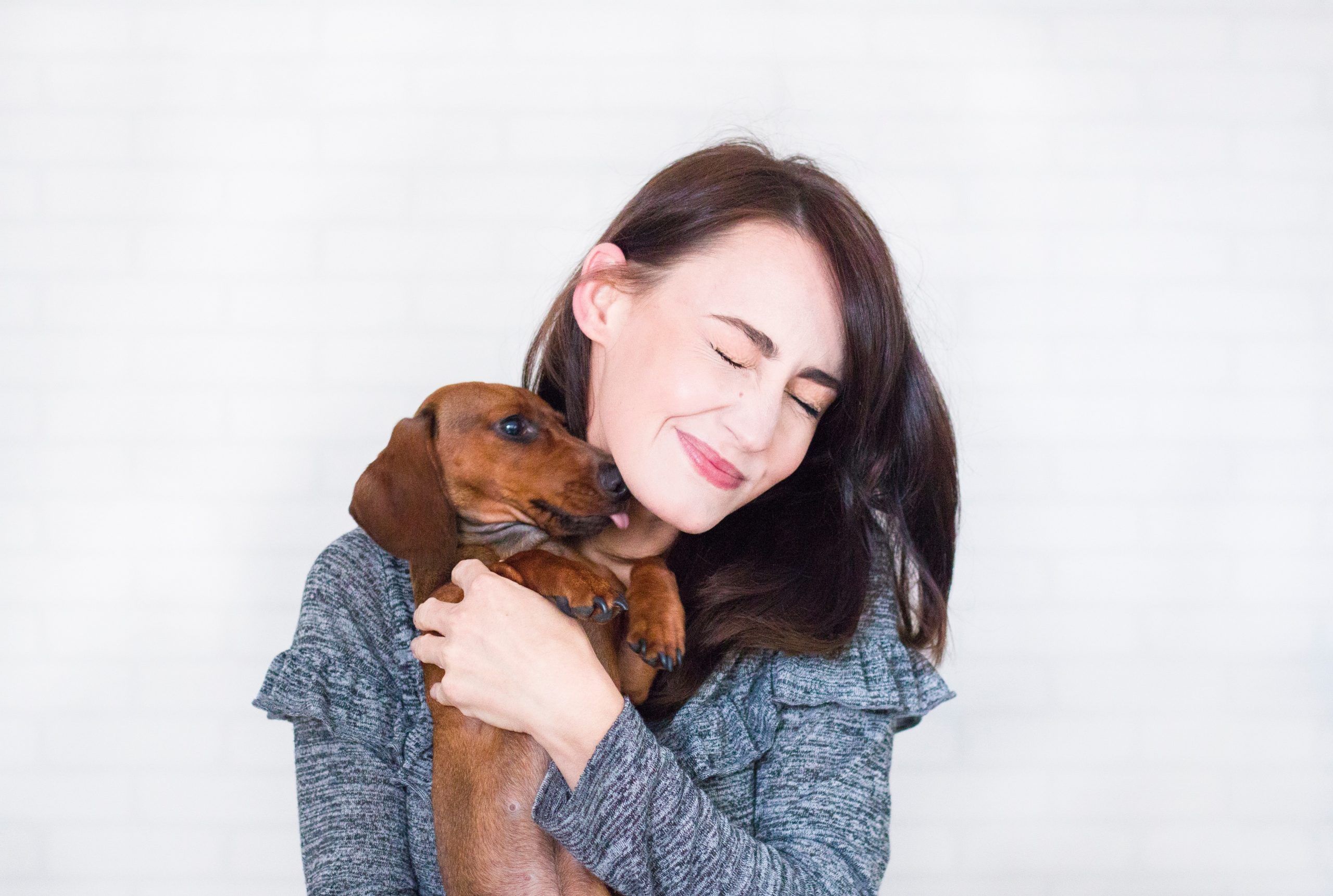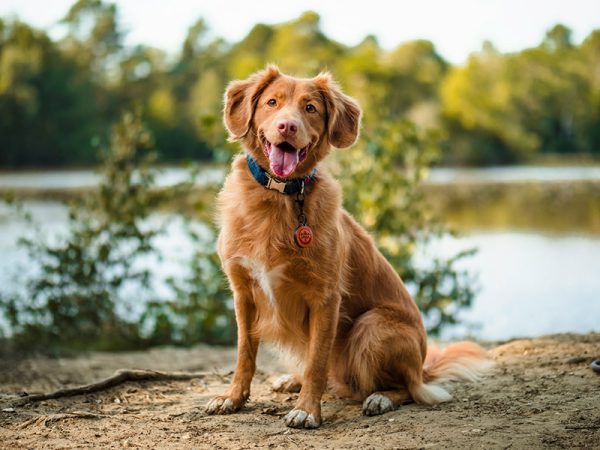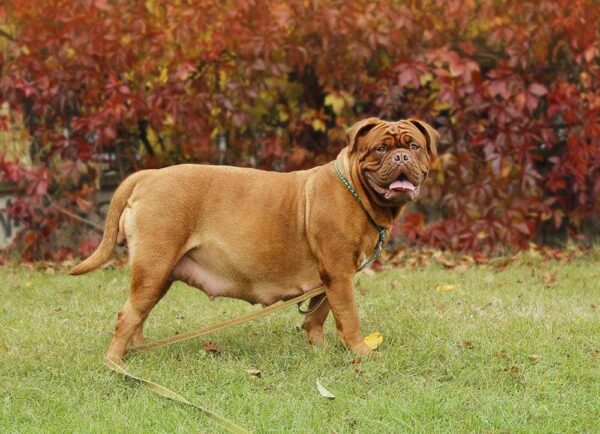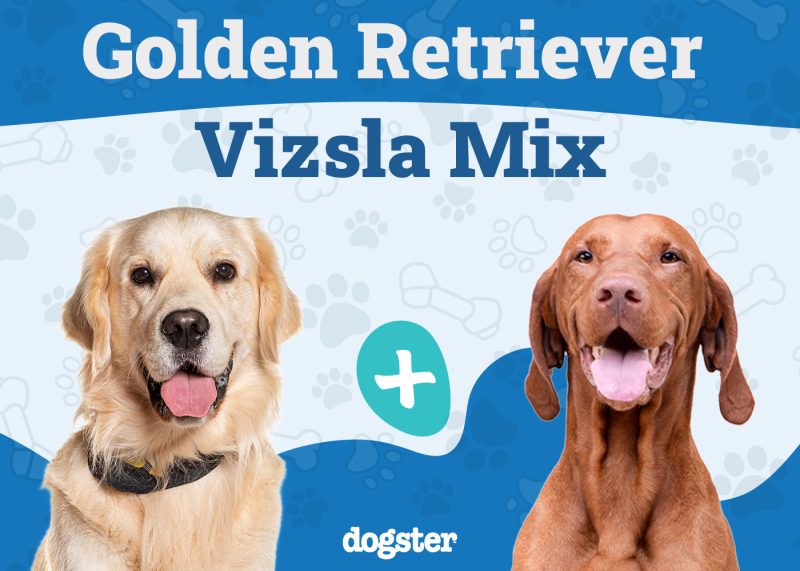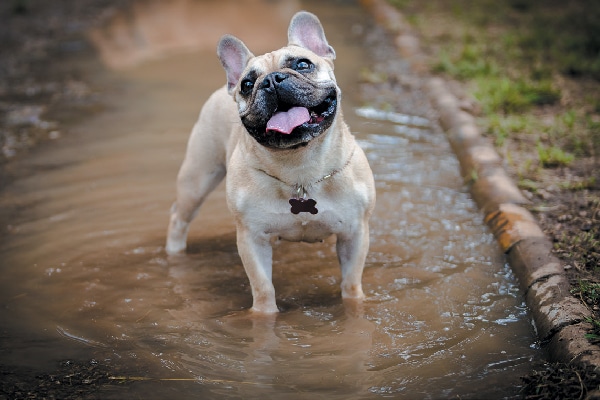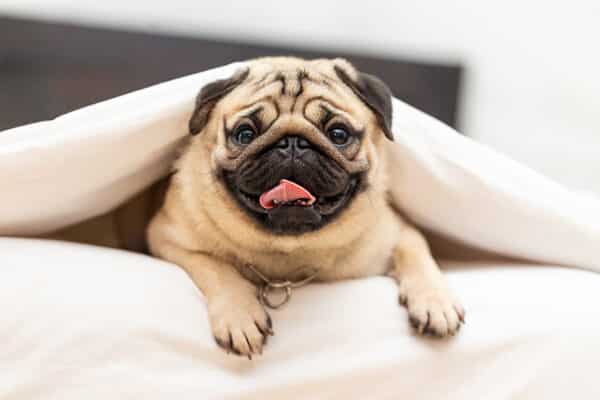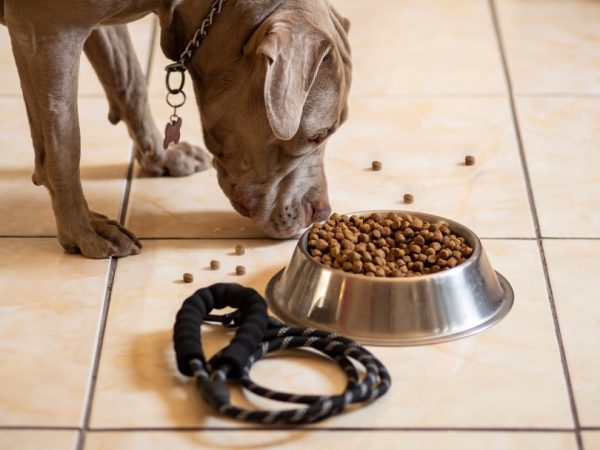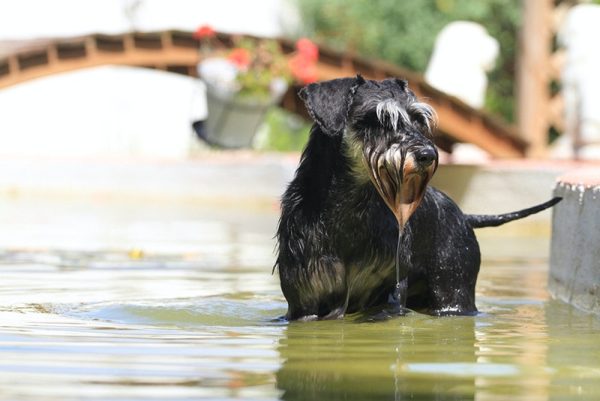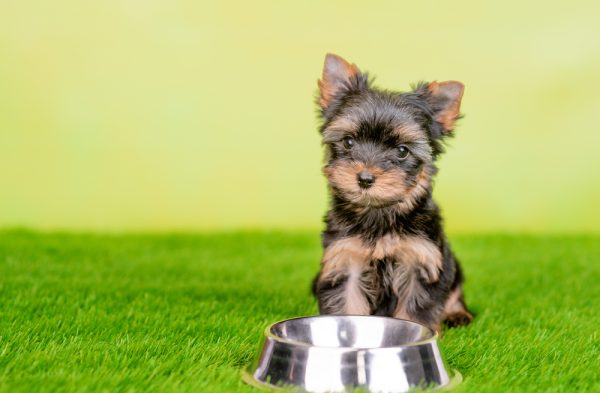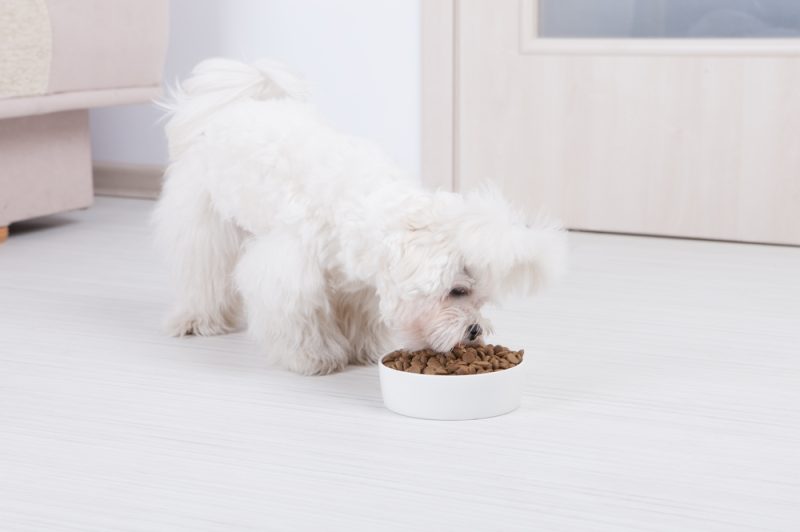In this article
View 2 More +While the slobbery kisses can be cute at first, you might start to feel like your canine pal is running a non-stop tongue marathon on your face. So, it’s totally understandable if you’re looking for ways to tone down the canine affection. Read on as we explore the “how” and “why” of your dog’s love for licking and vet-approved strategies to curb the enthusiasm.

Why Does Your Dog Lick You?
Affection
Most dogs lick their owners to express affection, just like how their mother cared for them when they were tiny, defenseless puppies. This behavior is therefore a demonstration of their love and attachment to the person who takes care of them. Dogs tend to lick easily accessible parts of the skin, such as the face, neck, hands, arms, and legs, to show their love and connection.
Dogs that use licking to display affection often extend this behavior to all members of the household. Some may even lick strangers! However, not everyone appreciates this gesture. If your guests are likely to find this exuberant demonstration of affection a bit off-putting, it’s best to teach your furry friend to control this urge as soon as possible.
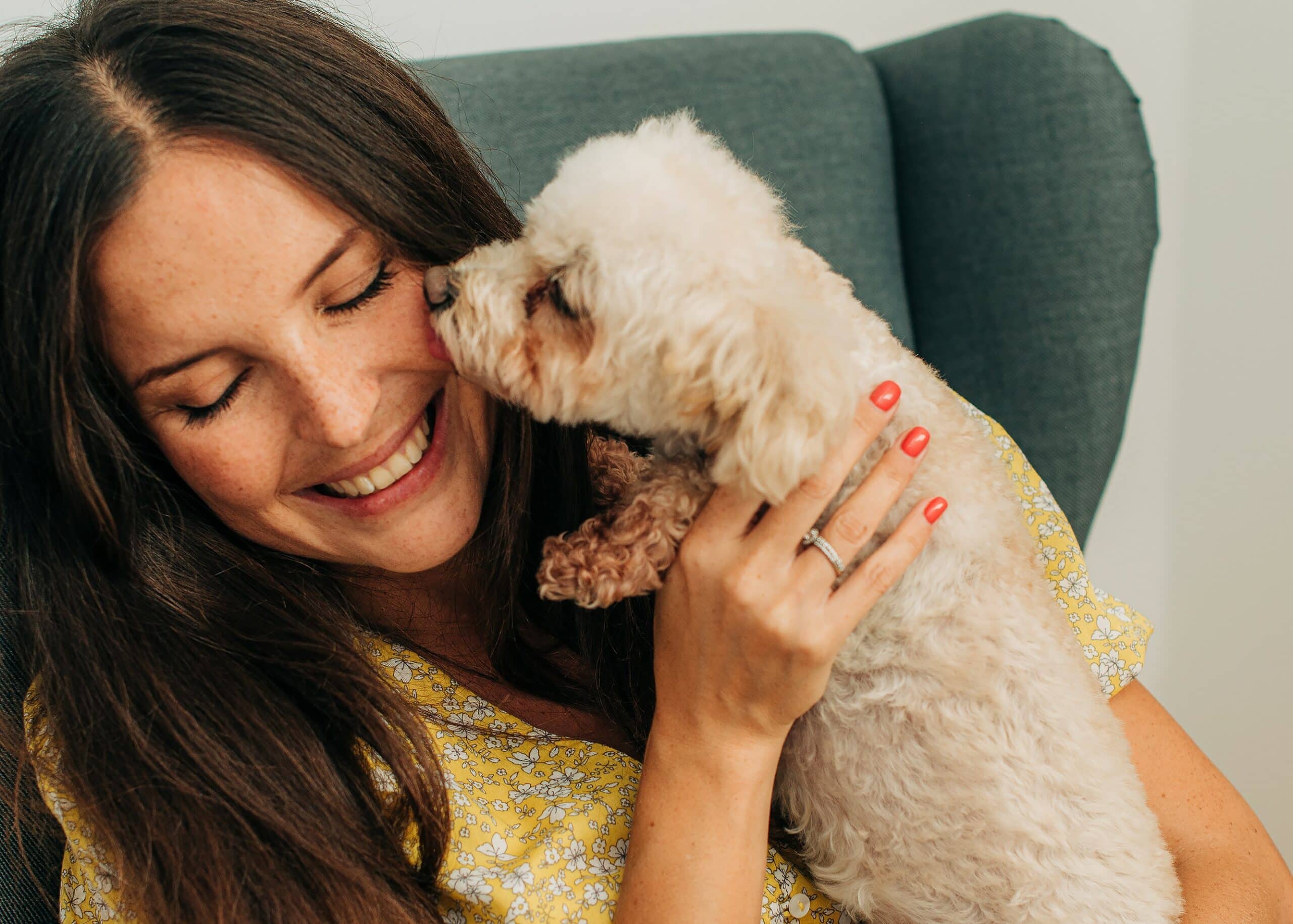
Stress
Similar to how cats may purr to relieve stress, your dog may lick you when they’re anxious or tense. This behavior is also rooted in instinct, as a mother dog licks her babies to soothe and calm them. This gesture resurfaces when the need arises to alleviate stress as it triggers the release of endorphins in their brain to help them feel better. Things like storms, loud noises, strangers, or a new environment can all be sources of stress that may increase your dog’s licking behavior.
Interestingly, this stress-relief licking can be directed toward humans when dogs sense that their owners are stressed or when they perceive tension in the household. Thus, if your dog senses that you’re stressed, tense, or angry, they may lick you as a way to offer support and help soothe your emotions. It’s their means of expressing concern and reinforcing the connection with the person who cares for them, aiming to ensure that everyone feels okay.
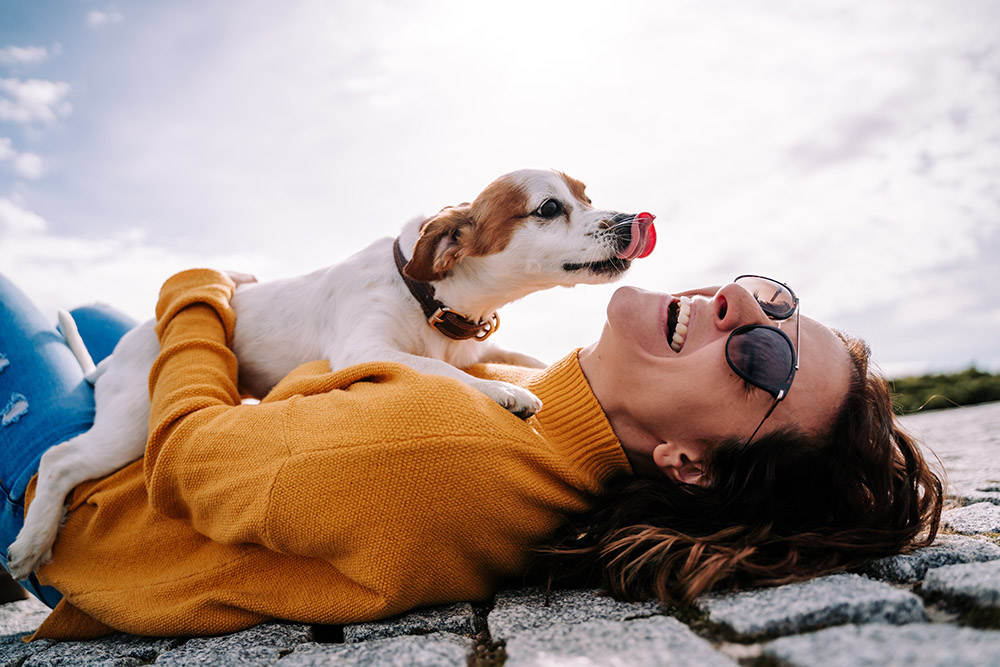
Need for Attention
Dogs may resort to licking their owners to grab their attention. Breaking this habit can be challenging; the best approach is to ignore it completely. Whether you respond with petting or scolding, any attention fulfills their goal, making them likely to repeat the behavior. Thus, ignoring them until they stop on their own is the most effective strategy—no talking, looking, or touching!

Before You Start: Rule Out Medical Issues
Excessive licking can sometimes be a sign of underlying health problems. So, before trying to modify your dog’s behavior, it’s best to schedule a visit to the vet to rule out any medical concerns.
The 7 Steps to Get a Dog to Stop Licking You
With all that in mind, let’s look at practical ways to curb your pup’s exuberant display of affection.
1. Set Realistic Expectations
Dogs use licking primarily as a form of communication and bonding, so completely eradicating this behavior might not be feasible or desirable. But you can still tone down the frequency and intensity of your dog’s displays of affection and keep their sloppy kisses more controlled.

2. Identify Their Triggers
Your dog may lick in response to specific triggers, such as excitement, stress, or even boredom. Observing your dog’s behavior can help identify these triggers. Does your dog lick more when guests arrive, during playtime, or when you’re watching TV? Paying attention to these signs will help you understand what triggers your dog’s licking “attacks,” so you can redirect their attention.
3. Use Positive Reinforcement
Positive reinforcement is always better than punishment. Use positive reinforcement to redirect your dog’s constant licking by keeping your pup’s favorite treats within reach. When your dog begins to lick you, gently shift their attention with a different positive interaction, such as a command or a toy. Reward them promptly with treats and praise when they respond appropriately.
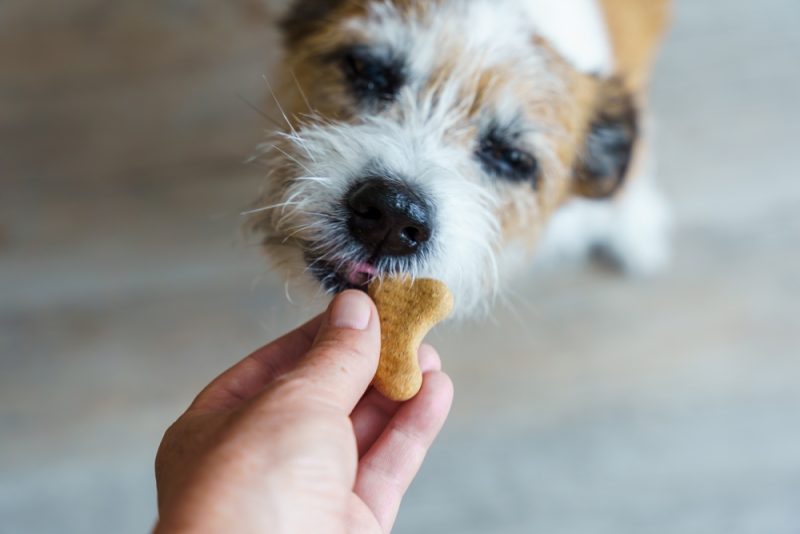
4. Redirect Your Dog’s Attention
Another way to redirect your dog’s licking impulse is by training them to engage in an alternative, more acceptable behavior. For example, teach your dog to sit or give a paw on command instead of jumping up to lick you or other people. This provides an outlet for their energy and reinforces your role as the leader in a better, more positive way.
5. Stay Consistent
Ensure that all family members and visitors are on board with the plan to discourage licking. Mixed messages will confuse your dog and may hinder all progress.
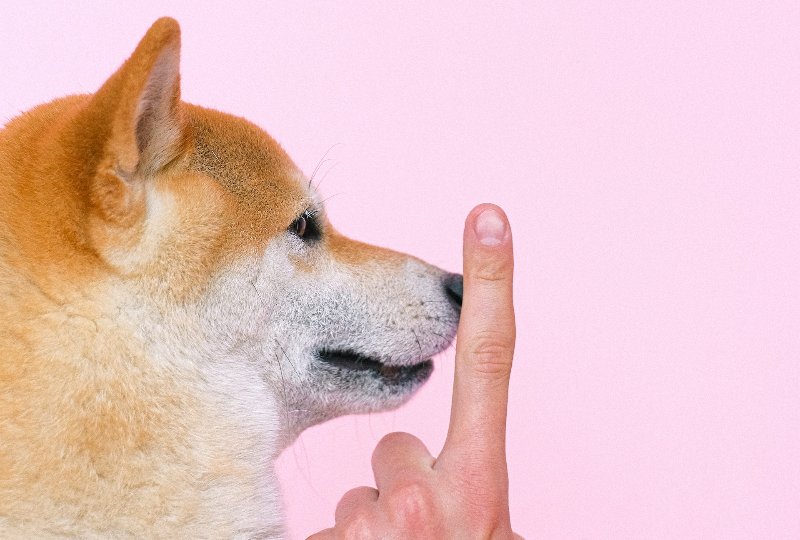
6. Tire Out Your Dog
A tired pup is often a well-behaved pup! Ensure that your canine companion gets enough physical exercise and mental stimulation to reduce pent-up energy that may contribute to their overenthusiastic licking. Daily walks, visits to the dog park, playtime, food puzzles, and other brain games are all great outlets for your dog to release their energy.
7. Be Patient
There’s a reason that “patience” and “consistency” are always mentioned in dog training: Changing behavior takes time. Be consistent, stay positive, and understand that progress may be gradual.
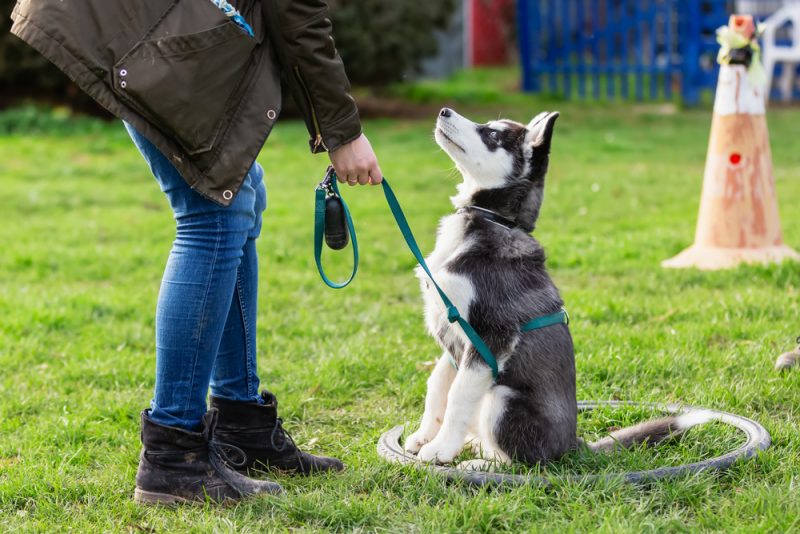

Frequently Asked Questions
Why Does My Dog Lick Me Excessively?
Excessive licking can stem from various factors, including a dog’s instinct to communicate and bond. It could also be a sign of anxiety, boredom, stress, infection, or gastrointestinal upset. Keeping a close eye on your dog’s behavior and consulting with a vet can help pinpoint the cause.
If you need to speak with a vet but can't get to one, head over to PangoVet. It's our online service where you can talk to a vet online and get the advice you need for your pet — all at an affordable price!
Can I Train My Dog to Stop Licking Guests and Strangers?
Yes, you can train your dog to control their licking behavior toward guests and strangers. Positive reinforcement methods, such as redirecting their attention to toys or issuing a command, along with consistent rewards for non-licking behavior, can help.
Why Does My Dog Only Lick Certain Parts of My Body?
Certain areas of your body, such as your hands, face, arms, or legs, are full of flavors and smells that interest your dog, which probably explains their interest in constantly licking them!
Should I Let My Dog Lick My Face?
While it may seem harmless, letting your dog lick your face isn’t recommended. Studies have shown that different bacteria such as Pasteurella spp., Capnocytophaga canimorsus, Helicobacter spp., and Corynebacterium bovis can be transmitted through licking. This is especially important in young children and the elderly, or if you have an open wound or a weakened immune system. If you have any concerns, it’s best to seek advice from your doctor.
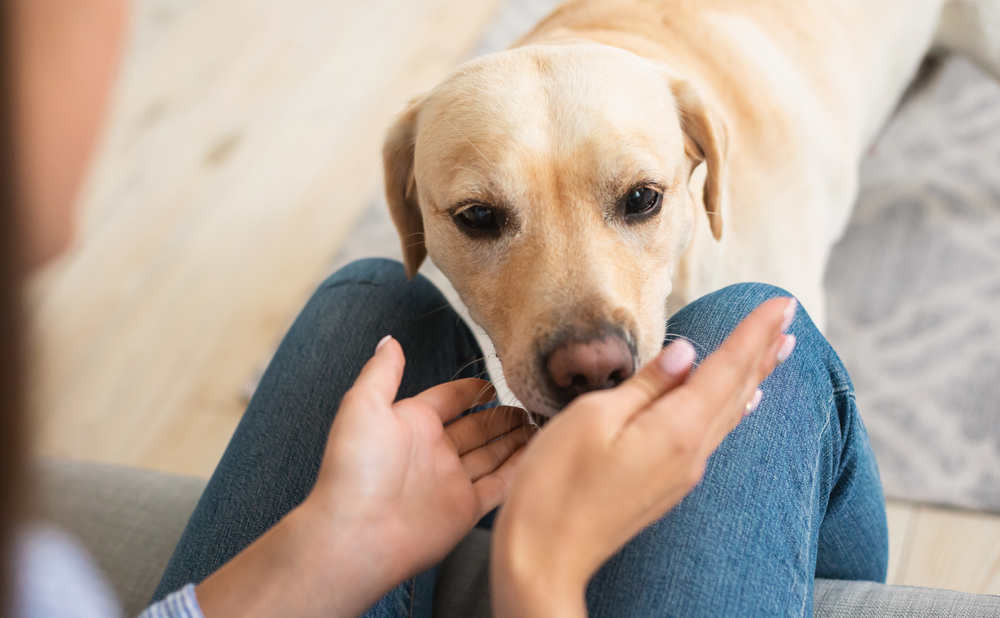

Final Thoughts
Licking is a natural behavior for dogs. For instance, puppies learn about the world through their mouths, and licking is an integral part of their communication and bonding process. However, when your adult dog continues this behavior excessively, it’s time to address the situation.
Fortunately, there are many ways to redirect your dog’s attention and curb their excessive licking of you. That said, if you’re having trouble stopping their licking and there’s no underlying health issue, a certified dog behavior consultant or veterinary behaviorist might be able to help.
See also:
- 16 Most Playful Dog Breeds: Facts & History (With Pictures)
- How to Stop a Dog from Marking in the House in 5 Simple Steps
Featured Image Credit: Jumpstory

